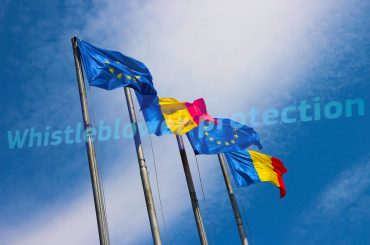The most exposed to fraud and corruption are companies acting in the first line of fighting with the COVID-19 outbreak.
In the middle of a crisis such the current one, companies face various unforeseeable challenges.
And although at this moment the attention is directed towards overcoming this situation, one may not neglect how this outcome is achieved, especially considering that once the “storm” is over, misconducts tend to come to light and regulators will almost sure enforce the relevant regulations.
As the worldwide spread of COVID-19 is increasingly disrupting supply chains, manufacturing, transportation, while also impacting a wide range of industries which face lower demands, suspension of business activity etc., businesses in almost all sectors are affected.
This situation is also supported by various bans and regulations aimed to limit the movement of people such as cancelled flights, quarantines, or bans on large gatherings (such as corporate events or conferences), which impede building new relationships or advertising new products.
All the above could enhance the pressure to meet the expectations and sales targets. Further, such pressure may lead people to make wrong choices and engage in various kind of misconducts, especially bribery or fraud in order to create business or receive various public subsidies.
The most exposed to fraud and corruption are companies acting in the first line of fighting with COVID-19 outbreak such as: (i) healthcare companies; (ii) pharmaceutical & medical device companies, (iii) companies participating in public procurement procedures, (iv) companies changing their business lines so that they can produce various products, devices, needed in this crisis and (v) charities or NGOs.
However, as the disruptions affect almost all business and the pressure to meet the expectations may be overwhelming, we recommend companies to (i) review their Anti-bribery and Corruption (ABC) compliance programs and asses current risks to which the company may be exposed; (ii) reiterate that the company has zero tolerance approach to bribery and corruption, (iii) encourage employees to report any kind of misconduct; (iv) if possible, implement some online training in order to refresh the ABC key topics to the employees and (v) at the end of this crisis, consider conducting an internal audit.
(i) Review the ABC compliance programs & reassess the risks
In order to implement a robust ABC compliance programme in the context of COVID-19, companies should conduct a proper risk assessment in order identify current risks factors to which they may be exposed. Next, companies should apply mitigating actions and procedures so that they limit their exposure.
If during the process, it appears that some procedures or programs are not appropriate, the company should also update its ABC compliance program or any other similar compliance policies such as the Code of Conduct for employees.
(ii) Reiterate that the company has zero tolerance approach to bribery and corruption
The company’s management should reiterate that there is zero tolerance policy for bribery and corruption. In time of crisis, employees, contractors or third-party suppliers are under pressure to meet their targets, thus potentially being inclined to bypass existing procedures in order to generate business.
Hence, companies should restate to their employees or agents that they are expected to continue to follow all the procedures in place without cutting corners.
Further, companies should continue to apply due diligence on third parties prior to engaging in a business relationship, considering that the COVID-19 outbreak created new opportunities for fraudsters to continue their illegal activities and thrive.
All in all, senior management need to make sure that all personnel abide by the compliance and prevention policies, in order to be assured that the business pressure does not outweigh the company’s commitment to ABC compliance.
One de-risking practice may be to reconsider sales target and profit margins and to discuss these aspects with the shareholders and employees.
(iii) Encourage employees to report any kind of misconduct
The company should continue encouraging its employees to report any kind of behaviours that appear to violate the ABC program or are questionable from ABC perspective. Considering that many employees are requested to work remotely (the compliance officer included), the company should make sure that the whistleblowing channels are still effective.
(iv) Implement some online training in order to refresh the ABC key topics to your employees
Since periodically ABC trainings are an important feature of compliance programs and considering the specifics of this situation, companies should be able to conduct online trainings in order to refresh and highlight key aspects related to their ABC compliance program (including emphasizing the current risks factors and giving examples of frauds or other misconducts that may occur).
If online trainings could not be conducted, companies should at least send clear and periodic messages containing such information via e-mail or intranet, while also underlying that misconduct is not tolerated.
(v) Conduct an internal audit
As soon as possible after COVID-19 outbreak is over, companies should conduct an internal audit in order to test whether the ABC compliance program was capable of preventing and detecting misconduct and compliance failures.
After this exercise, companies should be able to asses any legal risks that may have an impact on their activity and to take any necessary measures in order to mitigate the risk exposure.
***
It is well-known that misconducts such as frauds, bribery and other corruption malfeasances conducted in times of crisis have a tendency to come to light once the “storm” is over.
Despite the fact the Romanian legal framework does not impose any legal compliance or preventive measures, in order to reduce or mitigate the risk of being criminally liable, companies should be able to prove that prevention of bribery and corruption remains a top priority and that updated their AML policies and procedures in line with the current risk profile.
| White Collar Compliance & Defense Team | |
|---|---|
 |
 |
 |
 |





